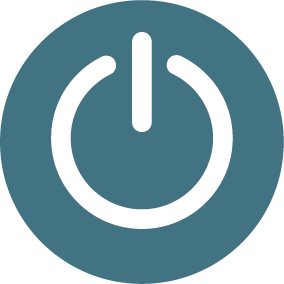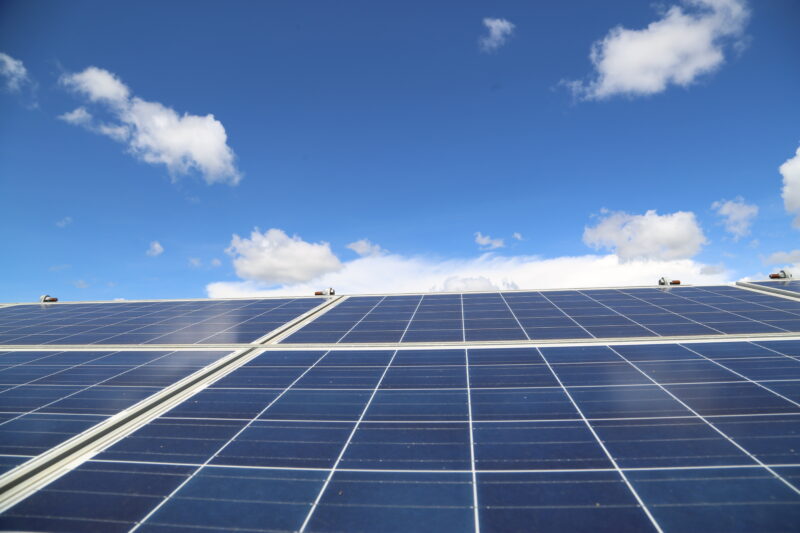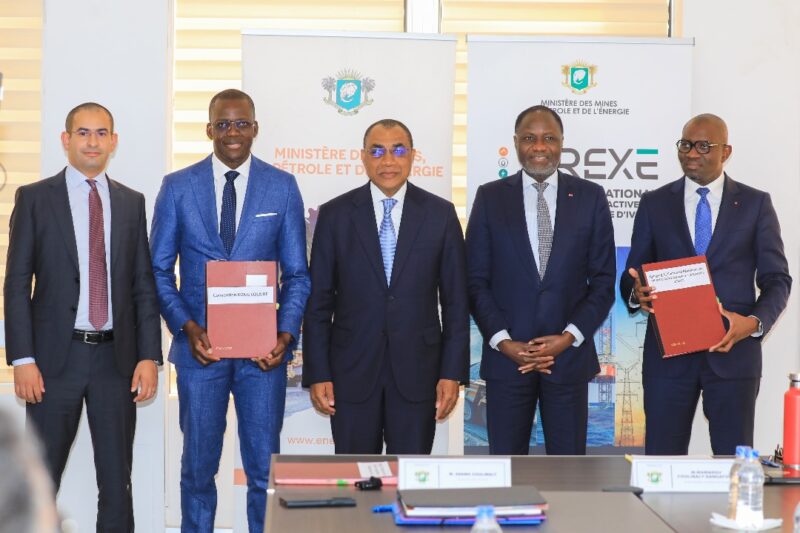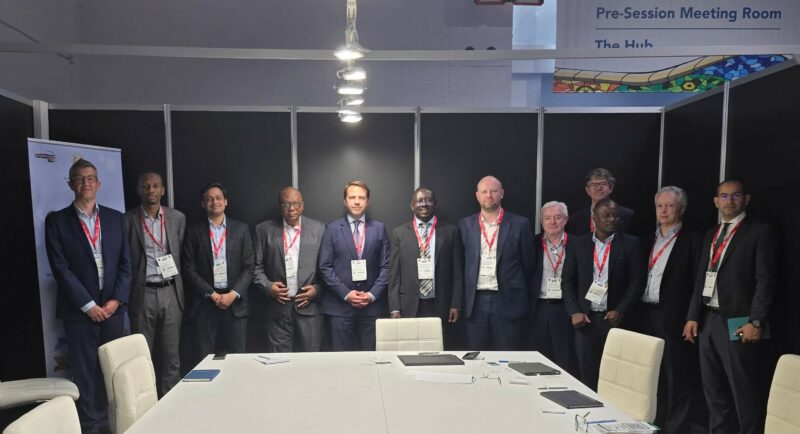PFI: Keeping Africa on an upward trajectory
17th Dec 2020
This piece was originally published in the Project Finance International Yearbook 2021 © Refinitiv. The original article can be found here.
How have African governments and companies responded to Covid-19, and how are they preparing for the different world it will bring in its wake? PFI speaks with Emerging Africa Infrastructure Fund on the company’s experiences on the front lines. By Peter Collins.
“This is likely to a be slow-burn commercial crisis for companies in our portfolio,” an EAIF spokesperson told PFI in July regarding the impact of Covid-19 on projects on the continent. At that time of the crisis there was still an air of uncertainty as to how long economies would be affected. GDP has fallen across nearly all countries – both developed and developing. But in riskier markets, the reverberations caused by the pandemic will be especially felt.
For companies like the UK-based EAIF, part of the Private Infrastructure Development Group (PIDG), with its focus on Africa’s nascent, inexperienced and struggling markets, risk assessment becomes second nature. “We already factor in pandemics to project risk assessment,” said EAIF, pointing out that there has been no shortage of health crises in Africa in recent memory. Overall – and partly due to this fact – the continent has actually fared relatively well with the novel coronavirus compared with Europe and North and South America.
“We stress-test business models during due diligence and build in resilience cash buffers, force majeure clauses, insurances and others in order to be able to withstand periods of uncertainty caused by pandemics, political instability and other unforeseen events.”
The impact on Africa has doubtless been quite severe – tourism, foreign investment, and exports are all down and a number of infrastructure tenders have been postponed or cancelled. Most sectors, especially power and aviation, have struggled. But the picture has also been one of resilience, with power demand increasing again since dips of as much as 30% in some countries during the first lockdowns.
It’s also worth noting that many of the issues facing Africa existed prior to the pandemic. “Some power sectors in Africa were already facing challenges – Covid just exacerbated them,” said Martijn Proos, director at EAIF. Several African countries have taken steps to renegotiate, reform, or unilaterally lower the price of power contracts with IPPs.
Kenya, Nigeria, Ghana and South Africa are all grappling with dropping power demand, financially struggling utilities and other issues that have rendered the existing situation untenable in the eyes of the government.
Zambia has become the first African country to default on its debts since the pandemic. Several African rated sovereigns face acute liquidity pressures and very high debt levels, according to rating agency Fitch, which downgraded Zambia’s long-term foreign-currency issuer default rating (IDR) to C from CC on September 24. A month later, S&P Global Ratings lowered its long-term and short-term foreign currency sovereign credit ratings on Zambia to SD, or selective default, from CCC–/C in the wake of the government’s suspension of debt service payments to creditors.
To be in the infrastructure business “is to live with crisis”, EAIF said, stressing that Covid-19 has set a new bar for challenging circumstances. That said, EAIF and the rest of the PIDG companies have had a busy time progressing deals amid the health crisis.
PIDG TA – which provides technical assistance grants and works to make projects bankable – was boosted with funds and personnel earlier in the year. InfraCo Africa has supported electric vehicles in Kenya, the Bumbuna Hydro plant in Sierra Leone and a Liberian inland storage facility in 2020, among others. GuarantCo provided French developer GreenYellow with a guarantee of Ar36.9bn (US$9.3m) on a 20MW solar farm in Madagascar, provided technical assistance to a Kenyan student housing project as well as guaranteeing its green bond issue.
EAIF, meanwhile, supported two local bond issuances for the Port of Dakar and Sonatel, and financed a floating regasification unit in a Ghanaian LNG import terminal.
In Kenya, construction work on Acorn Holdings’ development of affordable accommodation for 5,000 students restarted over summer following the country’s full lockdown, though with a reduced number of workers. With an innovative financing structure led by GuarantCo and with a US$12.7m input from EAIF, Acorn is PIDG’s first affordable housing project. GuarantCo provided investors with a partial credit guarantee to cover 50% of principal and interest due under the KSh5bn note programme in which EAIF is the anchor investor.
In May this year, EAIF was appointed the joint mandated arranger with Finnfund to raise US$30m of debt capital for Tembo Power. The company aims to build a hydroelectric plant at Kaptis in Western Kenya. It is also involved in several telecommunications deals – a sector that EAIF’s Proos noted as being particularly resilient in these turbulent times. In the developed as well as the developing world, it has become most apparent that robust telco infrastructure is essential to the world of work – whether for communication, administration, negotiation, or simply for working-from-home flexibility during global health crises.
EAIF is also about to announce a new transport project and has also approved a new solar PV scheme. The company has had a busy year with a strong pipeline and continues to seek out new opportunities. The projects have advanced, but not without some challenges caused by the new normal of the pandemic.
Restrictions on international travel and on gatherings of multiple people have, unsurprisingly, disrupted supply chains and the prompt delivery of components, tools and labour. This is a real problem for nearly every type of business and when, for example, a key spare part for a generator can’t get from the UK to East Africa, the output of a power plant can fall, which could impact revenues in turn.
Supply chain issues tend to lead to delays. InfraCo Africa’s Salima Solar, Chiansi Irrigation and Sierra Leone Mini-grid projects all managed to continue with construction – albeit slightly delayed by the pandemic as there were logistical challenges in getting equipment to site and internal travel restrictions, etc.
Generally, there has been some slowdown continent-wide – construction delays due to EPC contractors not traveling to the continent; authorisation and licensing delays due to governments being occupied locally with fighting the pandemic. Project development in all phases has been affected in this way.
Work on projects has continued in all cases. EAIF clarified, but things have certainly slowed. In keeping with a theme of exacerbating existing problems, these delays are in addition to the longer project development cycles investors have come to expect in Africa. Reducing development timelines through de-risking projects is one of the raisons d’être of PIDG and its companies, and the barriers to prompt project delivery will come as no surprise.
Pricing has been somewhat affected by elevated risk profiles, but EAIF does not expect any major structural changes in deals.
The pandemic is affecting the bankability of projects in countries with low sovereign credit ratings. Government ratings are taking hits across the continent, with Zambia only the most extreme example so far.
“Where the bulk of state revenues are dependent on oil or commodities, the collapse in global prices directly hits a country’s ability to financially support essential utility services or access to foreign currency,” said EAIF.
Proos offered three pieces of advice for any Africa-focused investor seeking to persevere through the pandemic:
First, “maintain a strong, open and transparent relationship” with lenders, a key principle in banking – a well-informed and trusting financier is more likely to consider flexible or innovative solutions. Second, “be creative” and look for new ways to deliver revenues. Third, and perhaps most relevant in Africa’s markets, “be patient”.
“Infrastructure is a long-term business and building stronger and more resilient economies in Africa is a long-term exercise. Despite the challenges of pandemic, Africa is a growth continent and we take a long-term view. People will still need infrastructure,” said Proos.
Myriad cashflow issues – including disrupted collection rates, hedging costs and the potential of renegotiated tariffs to name but a few – have caused a stress build-up in EAIF’s portfolio that is likely to see the company seek restructurings “here and there” in the near future.
Despite this, Proos cautioned that the situation was not as dire as some may have perceived. “We see some countries faced with liquidity issues, which will have to be resolved, but the issues were not to the extent that some might have expected,” he said.
The risk profile of Africa has certainly increased – as companies are working out of the crisis, it is likely that credit enhancements will be in high demand. Some of the EAIF power projects are being considered for extra enhancements. Although, naturally, in countries that have recently been downgraded these enhancements become trickier to secure.
On the technical side, the outcomes of Covid-19 may see the use of more drones for site due diligence and other smart tools of virtual technology. Artificial intelligence may be more to the fore in transaction processes and investors may invest in bigger and better remote conferencing technologies.
“We may travel less and learn to do be more productive when we do. But our values and vision won’t change. It will still be our job to help build more resilient and successful African economies and contribute to combating poverty,” said Proos.
Overall, Africa’s story is one of resilience over capitulation, and the efforts of investors to push on with important infrastructure projects will pay off in the long run. “There is light at the end of the tunnel, and we hope for a recovery in the course of 2021,” said Proos.
Related projects
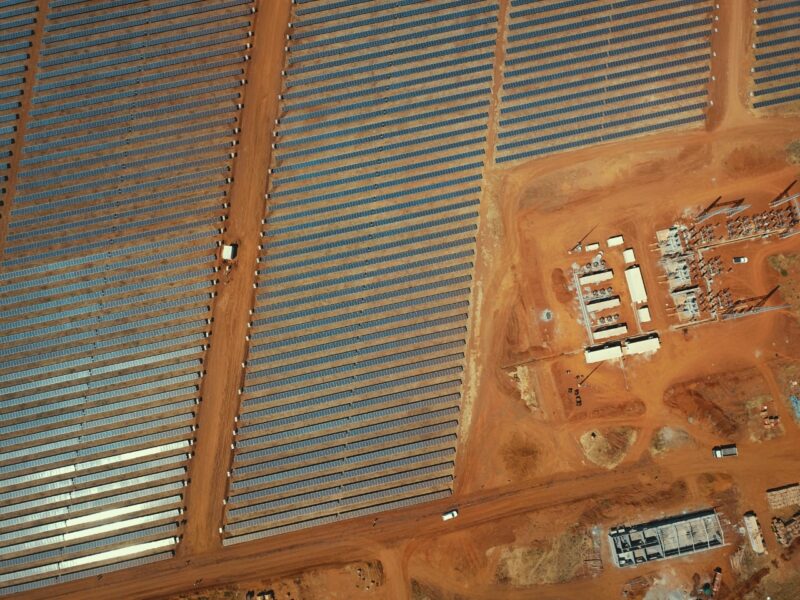
Malawi: Salima Solar
Starting the journey to solar power


